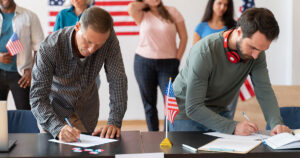
ISLAMABAD (Reuters) – Pakistan swears in a new chief justice on Friday, opening the next chapter for the Supreme Court which has made a name for an expansive agenda that has ranged from ousting a prime minister to pressing authorities to improve the public water supply.
A policeman walks past the Supreme Court building in Islamabad, Pakistan October 31, 2018. REUTERS/Faisal Mahmood
Outgoing Chief Justice Saqib Nisar cultivated a high profile, launching multiple inquiries aimed at reforming public institutions and going after political leaders, attracting both praise for cracking down on abuse and criticism that he was exceeding the court’s role.
His successor, Supreme Court judge Asif Saeed Khosa, has a taste for literary quotation but is otherwise considered a more classical judge, preferring to stay out of the limelight.
“I think Justice Khosa’s tenure will be substantially different,” said Saroop Ijaz, a lawyer for Human Rights Watch, who has been critical of Nisar’s activist court.
In one of its best-known judgments, the Supreme Court removed three-time Prime Minister Nawaz Sharif from office in July 2017 and ordered a corruption probe into his assets that led to Sharif being given a seven-year jail term in December.
The court enraged hardline Islamists last year by overturning the conviction of Asia Bibi, a Christian woman condemned to death for blasphemy against Islam.
But it has also used so-called “suo motu” provisions in Pakistani law that allow the court to open cases on its own initiative to set its stamp on wide swaths of public life and denounce the failure of public institutions.
It has ordered inquiries into issues ranging from payments to farmers by powerful sugar mills to milk prices, city water supplies and corruption allegations against managers of the railways and national airline PIA.
However the outgoing chief justice’s activism did little to drain the backlog of more than 40,000 cases at the Supreme Court and a staggering 1.9 million combined cases pending in other courts.
“It’s a highly problematic period at multiple levels,” said legal scholar Osama Siddique, an Associate Fellow at the Institute for Development and Economic Alternatives in Lahore.
“Justice Saqib Nisar’s entire emphasis was on other institutions and how they should improve their governance but he did not do anything to improve the governance and internal administration of the judiciary.”














